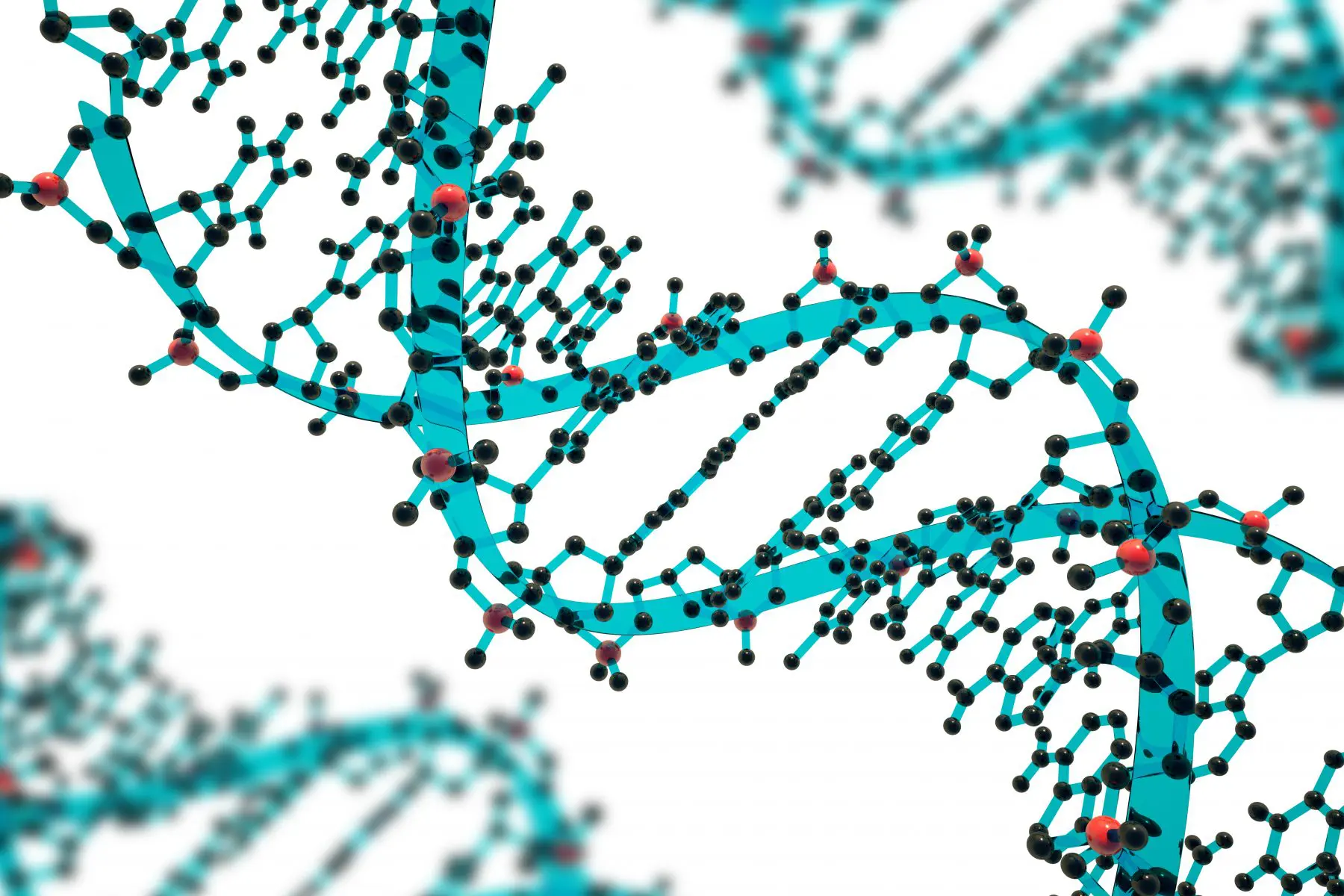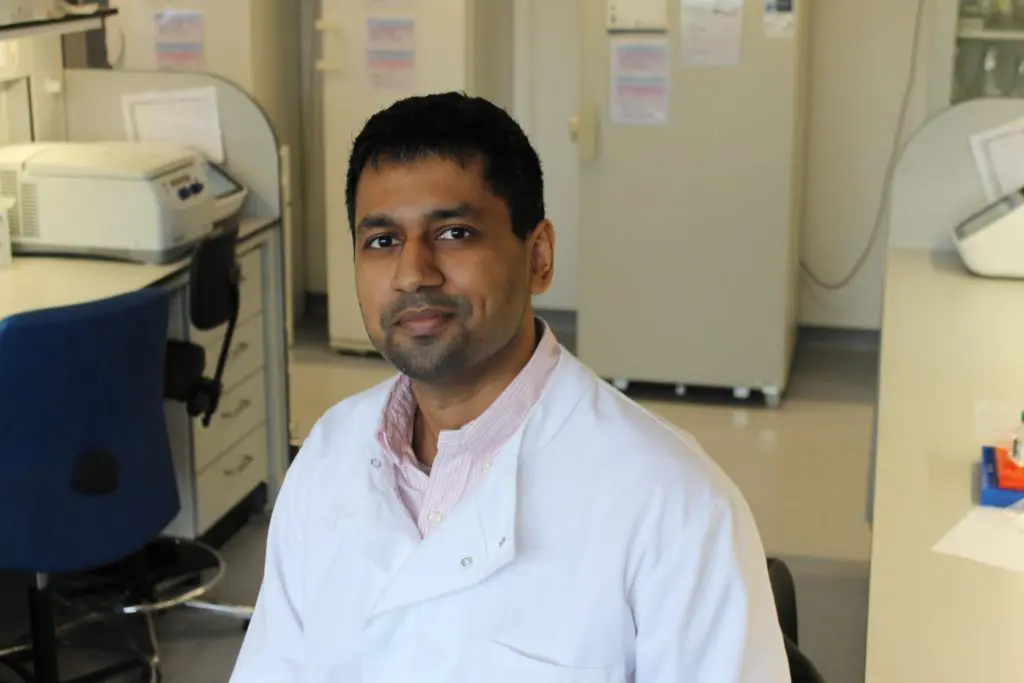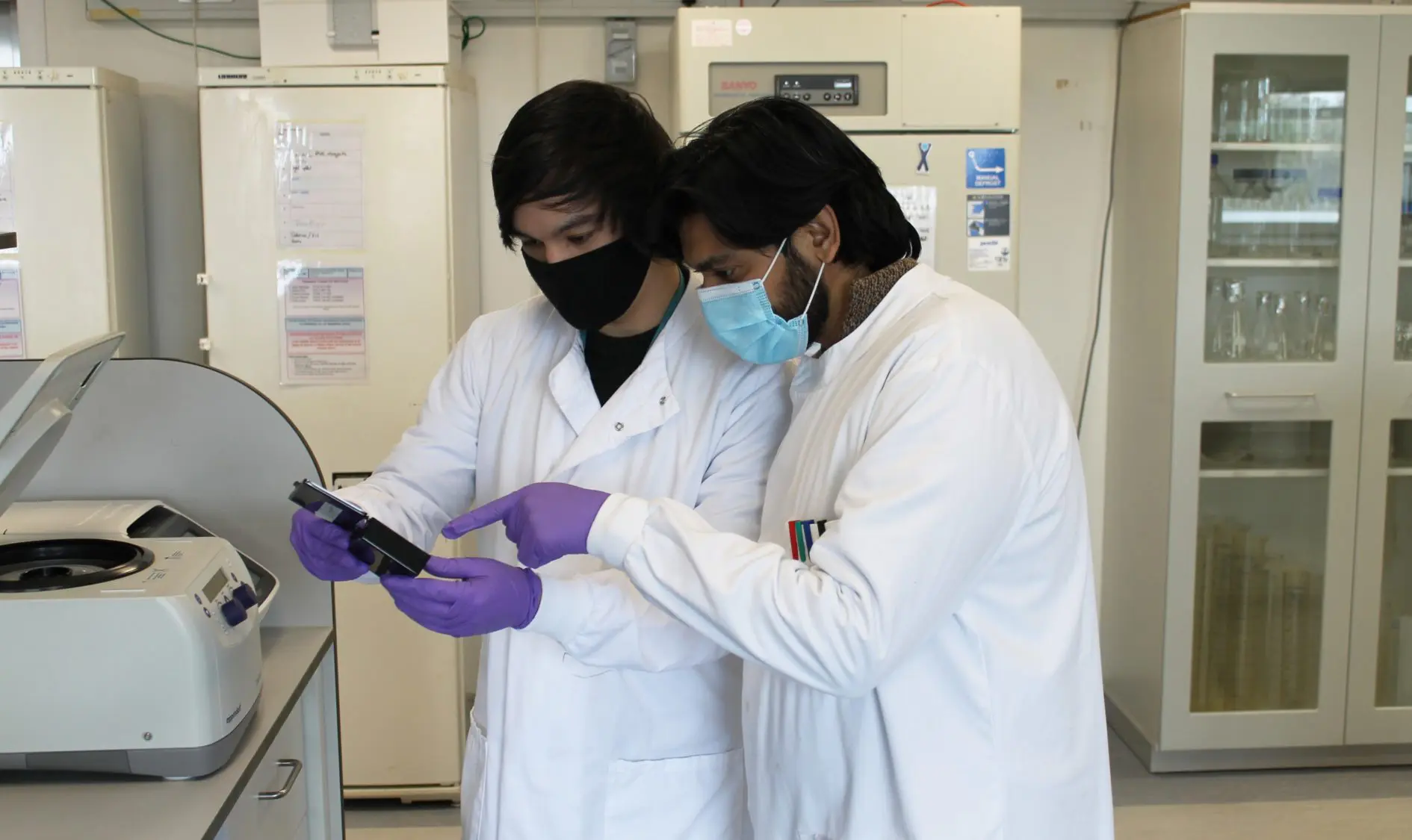ProCASP: could damaging DNA cure my cancer?
Project Summary
About the Researchers
Dr Harveer Dev
Principal Investigator
Harveer is an academic urologist based at the University of Cambridge. He works at an interface of clinical care and cutting-edge scientific research, and seeks to understand why individual patients become resistant to treatment and how to overcome this.
Dr Tanmay Gupta
Research Associate
Tanmay is a biochemist based in the Dev Group at the University of Cambridge. His interests are in developing CRISPR-based screening methods to find novel early high-risk prostate cancer biomarkers and investigate why damaging the DNA inside cancer cells only works as a treatment for some prostate cancer patients.
DNA Damaging Agents
DNA writes the code which makes our cells, and makes you you. Unfortunately, DNA is as fundamental to cancer as it is to life. DNA damaging agents (DDAs) can be used to treat prostate cancer. Examples include existing treatments such as radiotherapy and most forms of chemotherapy as well as newer therapies like PARP inhibitors. They work by damaging DNA leading to the death of cancer cells.
Unfortunately, DDAs do not work for everyone and at the moment, it is not clear why some patients benefit from these treatments, while others do not. This can make it difficult to know the best way to treat an individual’s prostate cancer. Different cancers have unique features which may make them particularly suitable or particularly unsuitable for a certain type of treatment. It may be possible to find patterns in the DNA of tumours that can be used to predict which treatment will work best for the individual patient.

Currently, doctors can’t predict which cancers will be killed by DDAs and which won’t before they start treating a patient.
Harveer and his team hope that the results from this project could be used to help doctors identify which therapy will work best for which patient in the clinic. This would prevent patients from receiving treatment that will not work for them and therefore prevent unnecessary side effects.
This research could also identify new treatments that could be used in combination with existing therapies to make them more effective at treating advanced prostate cancer.
The Research Project
The researchers will create an exciting new tool called ProCASP, which will be used to change DNA in prostate cancer cells taken from patients. They can then see which genetic changes help DDAs kill cancer, and which changes stop DDAs from working. This research will help us find patterns in DNA. These patterns can be used to identify which patients will benefit from DDA treatment, find new ways to treat prostate cancer and improve the effectiveness of existing treatments.

Dr Harveer Dev
